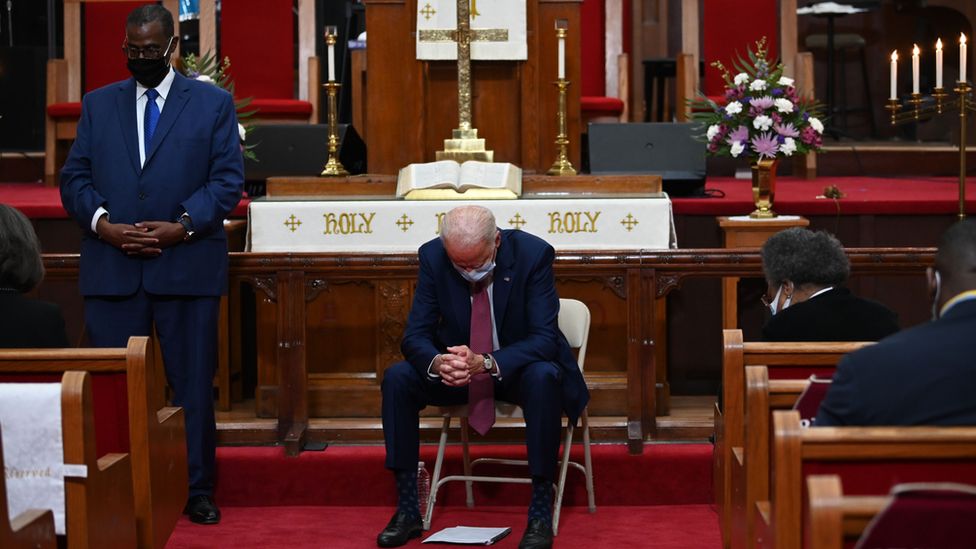In the intricate dance between faith and governance, President Joe Biden’s Catholicism has emerged as a focal point of discussion, particularly in light of recent comments by Archbishop Wilton Gregory of Washington. The Archbishop’s observations that President Biden “picks and chooses” parts of the Catholic faith to adhere to invites a deeper exploration of how Biden’s political actions and personal beliefs intersect with, and at times diverge from, traditional Catholic teachings.
Biden’s Approach to Catholic Faith
President Biden has frequently referenced his faith as a guiding force in his life and political career. He has spoken about the comfort and strength he draws from Catholic practices, such as attending Mass regularly and carrying a rosary. These personal anecdotes serve as reminders of his deep-rooted connections to his faith.
Legislative Actions and Catholic Doctrine
However, Biden’s stance on certain issues, such as abortion rights and LGBTQ+ rights, presents a more complex picture when viewed through the lens of Catholic doctrine. The Catechism of the Catholic Church holds clear, conservative views on these subjects, positioning them at odds with several policies Biden has supported or enacted.
For instance, the Catholic Church’s teaching on the sanctity of life from conception clashes with Biden’s pro-choice stance and his support for legislation that expands access to abortion services. Similarly, the Church’s traditional views on marriage diverge from Biden’s advocacy for LGBTQ+ rights, including marriage equality.
The Catechism and Biden’s Catholic Leadership
The tension between Biden’s personal faith and public policy raises questions about the role of religion in political leadership. The Catechism of the Catholic Church, while providing a moral compass for over a billion Catholics worldwide, does not offer explicit guidance on the responsibilities of Catholic politicians. This gray area is where Biden’s decisions come under scrutiny, juxtaposed against the Church’s teachings.
Counterpoints and Justifications
Supporters of Biden might argue that his policies reflect a broader interpretation of Catholic social teaching, emphasizing themes of compassion, social justice, and the common good. This perspective holds that addressing issues like poverty, inequality, and climate change aligns with Catholic values, even if specific policies do not align neatly with all doctrinal points.
Archbishop Gregory’s Role
Archbishop Gregory’s comments highlight the challenge of navigating faith in the public sphere. As a spiritual leader, his words carry weight, prompting both reflection and debate within the Catholic community and beyond. His observations underscore the ongoing dialogue between the Church and those in power, a dialogue that is essential for grappling with the complex issues of our time.
Conclusion
The interplay between President Biden’s Catholic faith and his political actions encapsulates the broader challenges facing religious individuals in positions of authority. As society evolves, the conversation around how faith informs governance will undoubtedly continue, with figures like President Biden and Archbishop Gregory playing pivotal roles in shaping the discourse.
This exploration into President Biden’s approach to Catholicism, through the lens of Archbishop Wilton Gregory’s observations, offers a glimpse into the nuanced relationship between personal faith and public duty. It is a reminder that in the realm of politics, as in life, navigating moral and ethical landscapes requires constant reflection and dialogue.
